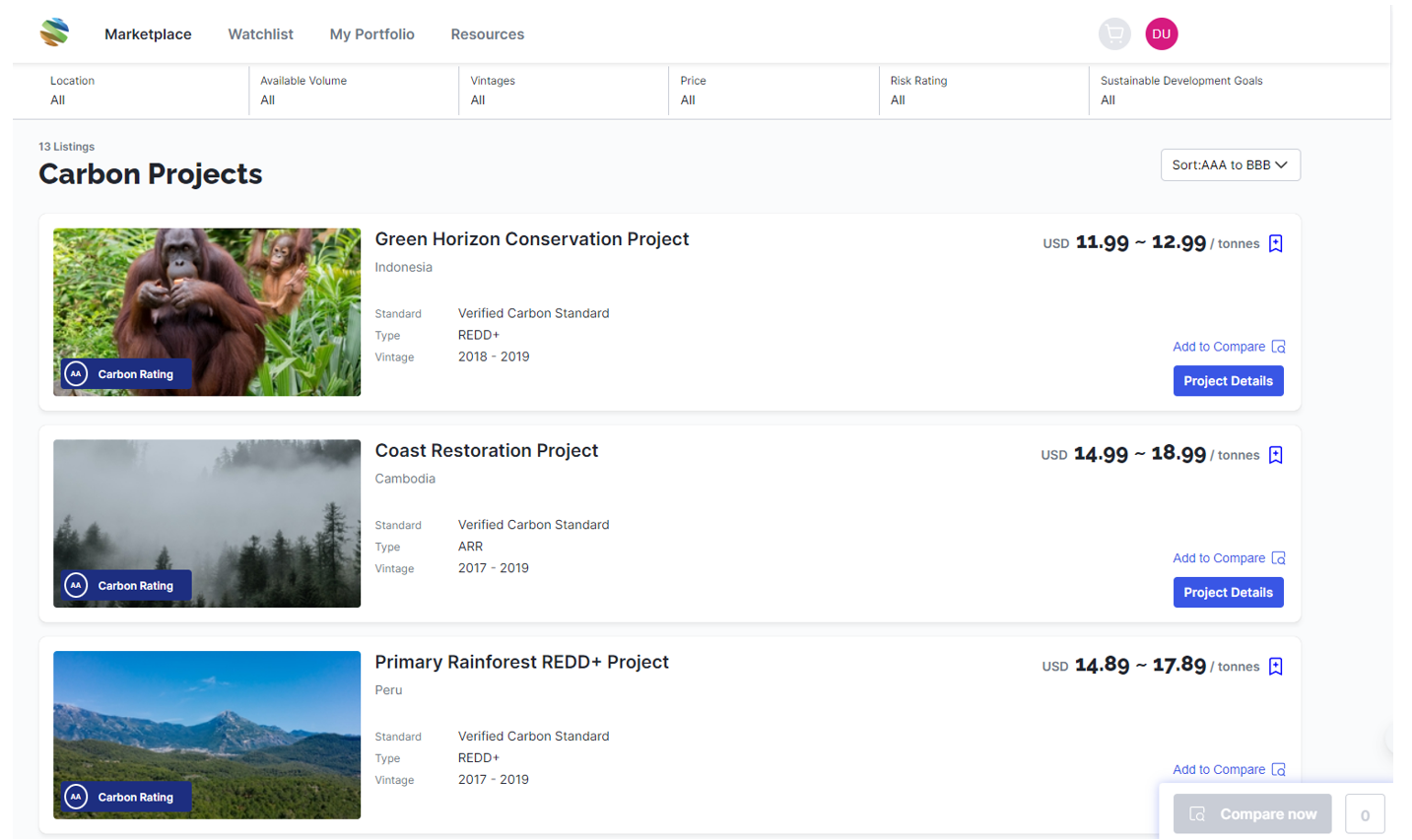Singapore's Climate Impact X launches platform to facilitate carbon credit trade
Sign up now: Get ST's newsletters delivered to your inbox

The platform will allow firms to discover, compare, and purchase carbon credits from various projects around the world.
PHOTO: CLIMATE IMPACT X
SINGAPORE - A digital platform that allows businesses to buy and sell carbon credits was launched on Wednesday (March 16) by Singapore-based carbon exchange and marketplace Climate Impact X (CIX).
Called Project Marketplace, the platform will allow firms to discover, compare and purchase carbon credits from various projects around the world.
For a start, the marketplace will mainly feature carbon credits from nature-based solutions, such as forest conservation efforts.
As forests can take in planet-warming carbon dioxide (CO2) from the air through photosynthesis, every unit of CO2 absorbed by a forest can be sold as a credit.
There are currently about 10 to 15 such projects listed on the platform, including the Tambopata-Bahuaja Biodiversity Reserve located in the Peruvian Amazon.
The agroforestry project, which spans an area roughly the size of Los Angeles, entails the restoration of degraded areas there. Help is also given to local farmers to help them transition to sustainable cocoa production, reducing their need to cut down trees in the area.
CIX chief executive Mikkel Larsen said credits from nature-based solutions typically range from US$12 (S$16.35) to US$17 per credit.
He said he expects those listed on Project Marketplace will be "on the higher end", although the price will ultimately depend on the supplier.
Mr Larsen also said that other types of carbon projects, such as those that use technology to suck up CO2 from the atmosphere, will be listed on Project Marketplace in the second half of this year.
The global trade in carbon credits essentially entails treating carbon as a commodity.
CO2, produced from human activity like burning fossil fuels and deforestation, is the main greenhouse gas driving climate change.
Companies or countries that find it hard to shrink their carbon footprint in the short term can purchase carbon credits - essentially paying someone else to reduce emissions on their behalf.
Each carbon credit represents one tonne of emissions, so buyers of the credits can offset this amount from their total emissions.
CIX, which was jointly established last year by DBS Bank, Singapore Exchange, Standard Chartered and Temasek to facilitate the trade of carbon credits, said its marketplace will enable businesses of all sizes to participate in the voluntary carbon market.
Once the credits purchased are used to offset a firm's emissions, the platform can also be used to "retire" the credits - which means a credit is taken off the market, never to be traded or swapped again - so as to ensure carbon savings are not double-counted.
The launch of the marketplace comes as the Government announced last month that large emitters in Singapore that have to pay a carbon tax can from 2024 buy international carbon credits to offset up to 5 per cent of taxable emissions.
Mr Larsen said creating marketplaces defined by transparency and integrity is of utmost importance for a rapidly evolving landscape like the voluntary carbon market, especially during periods of uncertainty.
"Responsible corporates are looking for assurance that the credits they buy will deliver tangible, lasting climate impact... Our aim is to engender greater confidence amongst buyers and sellers of carbon credits," said Mr Larsen.
"To achieve that goal, we focus on curating quality credits and offering credible data, insights and practical guidance to our wider community."
For example, the Project Marketplace platform will feature third-party ratings, supplemented with satellite monitoring technology data, of the various carbon projects listed on it.

CIX said it works with Sylvera, a firm that provides data on nature-based offset projects. Sylvera provides information about each project, such as the permanence of the carbon removal, co-benefits of nature-based projects and risk.
Global demand for carbon credits is expected to grow, following an outcome at last November's climate change conference COP26 that allows countries to buy carbon credits to meet the climate targets they set for themselves under the Paris Agreement.
This has made the set-up of carbon projects more profitable for land developers, who may choose to conserve a forest to sell carbon credits instead of cutting it down for oil palm or other crops.
But observers have pointed out that such projects need to be established in consultation with indigenous communities living on the land. International media outlets have reported on how a controversial carbon trading deal in Malaysian Borneo was inked with no due diligence or consultation with the indigenous groups living there.
Asked how CIX will ensure that credits sold on its Project Marketplace platform will respect the rights of affected communities, Mr Larsen said social integrity was a key component of CIX's assessment of a project before it is listed on the platform.
He also pointed to CIX's independent international advisory council, which provides views on the latest science, policy and market application.
The council comprises various experts, from academics to non-government organisations, observers and representatives from global verification bodies.
"We also want to have representation from indigenous communities," he said, acknowledging that this was a complex issue that varies among countries.
He said CIX was taking steps to assess the various projects, in consultation with its advisory council.
"That is ultimately our safeguard of making sure that there is community engagement, and that there are no infringement on local communities," he said.


